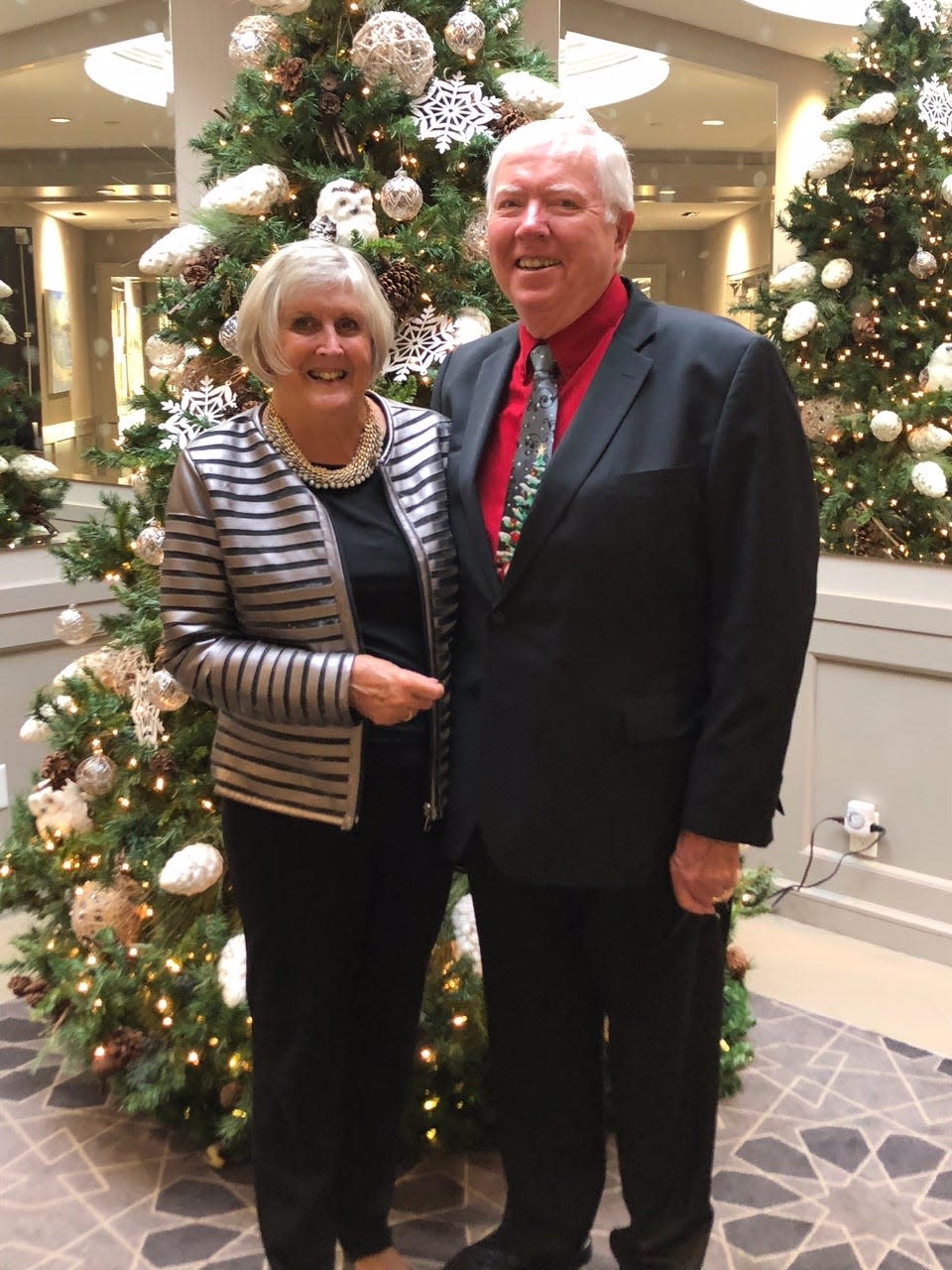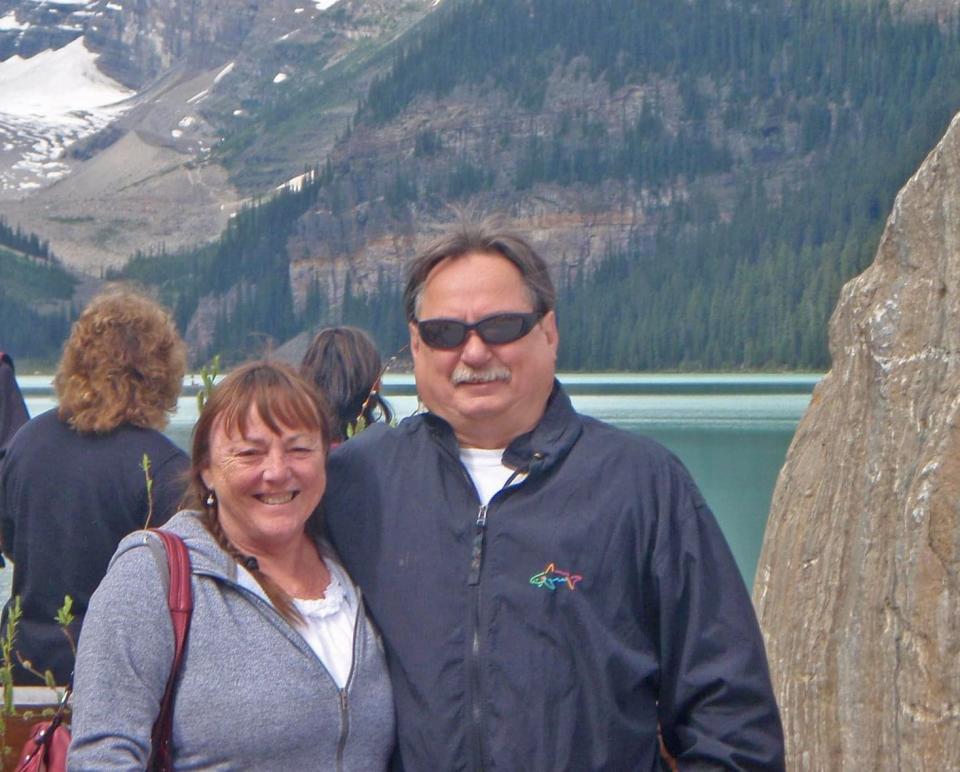By land and air, Canadian snowbirds returning to Polk County

Scott and Nancy MacDonald are thrilled to be back out on the golf course and pickleball courts at Four Lakes Golf Club in Winter Haven.
Like many Canadian snowbirds, the couple missed out on spending the winter months at their Florida home last year. Determined not to spend another winter in Ontario, they arranged to fly south and have their vehicle shipped as it remained unclear when the land border would reopen.
The MacDonalds arrived Oct. 15 and plunged into their schedule of playing golf and pickleball.
Related: Canada's snowbirds line up to head south as border opens with US
Canada Report: Government ends COVID-test requirement for Canadians coming home from abroad
“We really, really missed it last year,” said Scott MacDonald, 58. “I've lived through 56 winters back home, and I was so happy to retire and start spending my winters in Florida. It was difficult for the both of us to spend another winter back home. We’re both absolutely thrilled to be back. There’s no place we'd rather be.”
As MacDonald spoke Tuesday afternoon, the temperature was 65 in Winter Haven and 30 in his Canadian home of Kingston, Ontario, across the St. Lawrence River from upstate New York.
The United States and Canada closed crossing points along their shared border in spring 2020 in response to the spread of COVID-19. Travel south by vehicle wasn’t an option last winter for Canadian snowbirds, though some chose to fly to Florida and have their cars shipped down.
Estimates say hundreds of thousands of Canadian snowbirds remained in their home country last winter.
Previously: Canadian snowbirds with homes in Polk County hope for opening of land border
Canada opened its border for vehicle crossings in August, but the United States didn’t reciprocate until Nov. 8.
Scott MacDonald retired 2½ years ago, and he and Nancy became part-time Floridians for the winter of 2019-2020. As concerns about COVID emerged, they returned to Canada earlier than planned in March 2020.
The couple would have flown to Florida for the winter last year, Scott said, except that Nancy had some health issues. He came to Winter Haven in January to check on his home at Four Lakes but wound up returning after less than three weeks for his daughter’s wedding.
Heading into the fall, Canadian snowbirds keenly awaited word of when the United States would reopen its border crossings. The announcement came a few days before the MacDonalds were due to fly south, and they decided to stick with their plans rather than cancel their airline tickets and drive down.
Canadians driving through U.S. border checkpoints must be fully vaccinated, just as those who fly into the country. Scott MacDonald said he and his wife have both received AstraZeneca’s COVID vaccine, a version not offered in the United States, and they weren’t sure if American border guards would recognize them as fully vaccinated.
In 2020: Canadian government urging snowbirds to stay home
“So we didn't know what the rules would be, coming into the U.S. at that point, or what kinds of vaccines would be acceptable,” he said. “There were just too many unknowns. We decided to stick with the plans.
MacDonald said the Canadian snowbirds he knows seem about evenly divided between those who traveled to Florida by air and those who waited and drove down in November.

Another Canadian couple, Stephen and Ann Harkness, opted to wait and drive to Florida from their primary home in Kingston, Ontario. They headed south for Winter Haven a day after the border opened on Nov. 8.
The couple, who also own a home at Four Lakes Golf Club, have been spending winters in Polk County for 17 years — with the exception of last winter. Between the land border closure and concerns about COVID, they remained in Ontario.
Ann Harkness said she and other Canadian snowbirds were eager to migrate south this fall.
“They were just biting at the bit till that border would open up for them to not have to fly,” she said. “And it didn't make any sense why they could fly but couldn't drive, you know, when we're all fully vaccinated. That was the other thing. But anyway, rules are rules.”
Harkness said some Canadians chose a third option – crossing the border by helicopter near Niagara Falls and having their vehicles shipped into New York for the drive south.
COVID by the numbers: Polk's COVID infections dip slightly; vaccinations flatten
“We play (golf) every day, or almost every day — he plays six days a week and I play five,” Harkness said. “So it's just great to be back in the nice temperatures. We didn't have snow when we left, but it was getting cool.”
Bob and Lois Slack, also winter residents of Four Lakes, decided not to wait for the border crossings to reopen. The couple arranged to fly to Florida and have their vehicle shipped.
Bob Slack said the shipment cost about $1,400.
“We just decided we don't need the hassle of canceling airfare, canceling shipping our vehicle and so on,” he said. “So we said, ‘Let's continue. It'll be a new experience for us.’”
The Slacks, who live in Athens, Ontario, have been spending winters in Florida for more than 20 years. Bob Slack said Canadians welcomed the option of driving to the United States after 20 months of a closed land border.
“Well, for snowbirds, it was a relief,” he said. “It was great. Now, those that do short trips or day trips it’s not so good because to get back into Canada at this point in time, you have to have been tested for COVID 72 hours before you come in and get back into Canada, so we're hoping that they soon do away with that.”
One of the usually highlights of the winter for Canadians in Polk County is the annual Snowbird Extravaganza, held in late January at the RP Funding Center since 2003. The pandemic forced the cancelation of this year’s gathering, and the event will miss a second straight year because of continued uncertainty about the virus, said Scott Sloman, the facility’s assistant director.
Where to get a booster: Publix joins others expanding adult booster shots for Covid-19 vaccinated
Sloman estimated that the one-day gathering draws 15,000 to 20,000 visitors. He said the absence of some Canadian snowbirds since spring 2020 has had a noticeable effect on sales for other events.
“It did hurt us because probably a large portion of our subscriber base and our ticket buyers do come from Canada, and with them not coming down it has impacted our ticket sales,” he said. “We hope they do pick up day of and advance sales, as opposed to the subscription sales we depend on.”
Gary White can be reached at gary.white@theledger.com or 863-802-7518. Follow on Twitter @garywhite13.
This article originally appeared on The Ledger: Canadian snowbirds return to Polk County, whether by land or air

